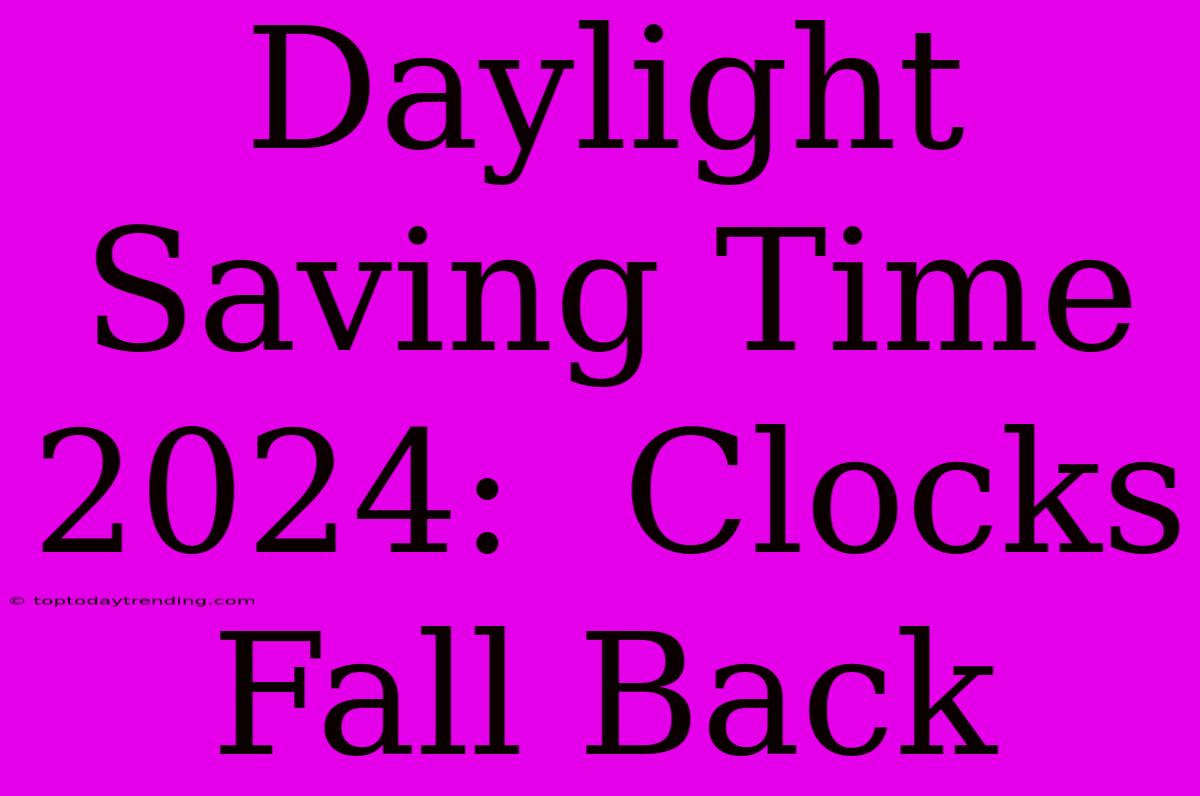Daylight Saving Time 2024: Clocks Fall Back
The annual tradition of changing our clocks is upon us once again. On Sunday, November 3, 2024, at 2:00 AM, we will "fall back" to Standard Time, gaining an extra hour of sleep.
What is Daylight Saving Time?
Daylight Saving Time (DST) is a seasonal time adjustment that moves clocks forward by one hour during the summer months. This practice, in theory, makes better use of daylight by extending the amount of daylight hours in the evening. However, there are ongoing debates about the benefits and drawbacks of DST.
Why do we change our clocks?
The practice of shifting clocks started in the United States during World War I to conserve energy. It was thought that using daylight hours more efficiently would reduce the need for artificial lighting. While energy savings are not as significant today, many people argue that DST provides economic benefits, including increased outdoor recreation and extended business hours.
What happens when we fall back?
When we "fall back" to Standard Time, we essentially return to the time we used during the winter months. This means:
- Clocks will be set back one hour.
- We gain an extra hour of sleep.
- The sun will rise and set earlier.
Important things to note:
- The exact time of the transition may vary slightly depending on your time zone.
- It is important to adjust your clocks and any devices that use time, such as alarm clocks, computers, and cell phones.
- Be aware of the potential impact on your sleep schedule and work schedule.
Controversy surrounding Daylight Saving Time:
While DST remains popular in many parts of the United States, there is also significant controversy surrounding its practice. Some argue that:
- It disrupts sleep patterns and can lead to health problems.
- It doesn't actually save energy.
- It can lead to accidents and safety issues.
Several states have recently proposed legislation to permanently switch to Daylight Saving Time, and the US Senate passed a bill to do so in March 2023. However, the House of Representatives has not yet passed a bill, and the fate of DST remains uncertain.
Conclusion:
Whether you love or hate the idea of changing our clocks, Daylight Saving Time is here to stay for now. As we "fall back" on November 3rd, 2024, remember to adjust your clocks, enjoy that extra hour of sleep, and be mindful of the potential impacts on your sleep and daily routine.

